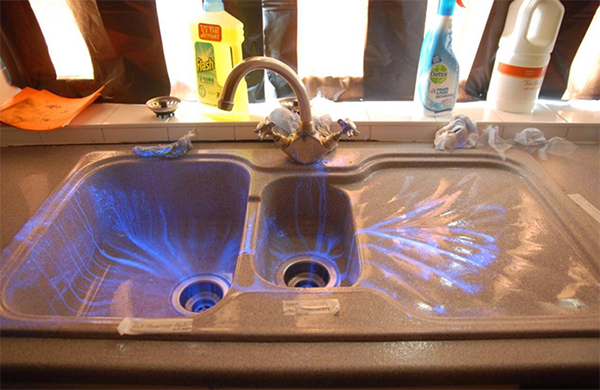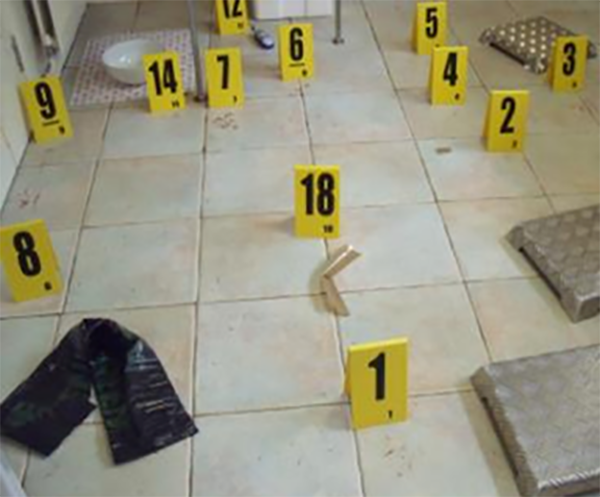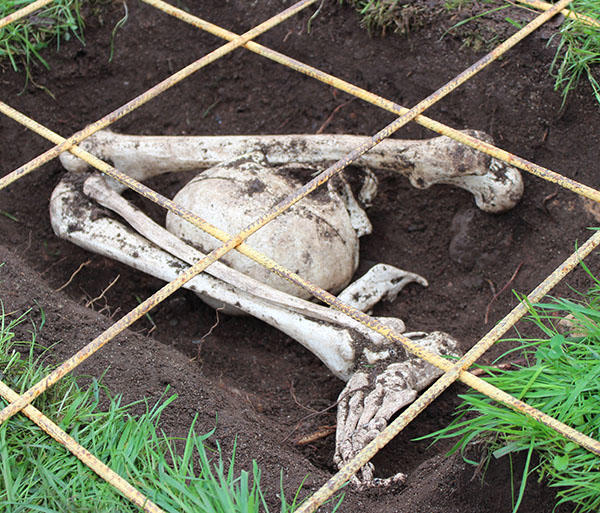People are so engaged with CSI type dramas and crime documentaries currently that it is actually having an effect in real court rooms… this is known as the CSI effect.
Jury’s are getting more demanding of the forensic world. I think this has some positives (like giving the Jury a desire for evidence to assist with their decision making)……. But as they have been largely informed by a dramatised version of the Forensic world, in some cases they are expecting the moon on a stick. Whilst Forensic Science is the centre of my world (and that of many others) it is not always necessary in each and every case.

There are a wide range of misconceptions about criminal investigations, for example, in my 20 years as a Forensic Biologist I have lost count of the times I have been asked about conducting autopsies. Yes; I have been to and assisted at autopsies but nope, that person is actually a Forensic Pathologist. That is just one of many misunderstandings which is exacerbated by such TV shows, I don’t wear Gucci heels, have a gun, interview suspects or go to low level volume crime scenes. Those are all other, different and vital links in the chain (apart from the heels!) which would potentially push the budget and story line of a crime drama. As a Forensic Biologist I have however been to serious crime scenes such as sexual and violent assaults, suspicious deaths and murders. I have given evidence in courts (including the Old Bailey as my maiden appearance) as an expert witness. In the main the role of a Forensic Scientist is more of a laboratory based and interpretational affair where we can examine items from swabs to shoes, knives to knickers, cars to carpets, bones to bullets. Training the next generation of Forensic Scientists in these skills and in their soon to be role within the whole process is really important to me. We explore all the REAL roles within the chain allowing them to really open their eyes to each and every one and pick their path with inside knowledge.

Timings are another poor comparison to the TV shows; I would love one of the magic black boxes they have were a sample goes in one end and instantaneously comes out with a match at the other end! Partly because Forensic Science relies on Science not magic there are more stages and longer time intervals at pretty much every stage of every test that makes it onto a show. But also in the real world Scientists are not fortunate enough to drop everything and work on one single case at a time (usually around the clock at the detriment of their family life to add more flavour to the story!). Having a great actual understanding of what is actually going on in these processes can be a real eye opener and our students get hands on behind the scenes experience of these processes, evidence examinations and analytical testing.
To be a Forensic Expert the background knowledge is key for example my background prior to movement into Forensic work was in human biology in particular genetics. So with the students and experts I train and work with the background and underpinning can not be underestimated and puts our graduates head and shoulders above others as they have key employability skills within mainstream biology and also everything they need to pursue a career in the Forensic arena.

The technical difficulty of some cases is sometimes also over dramatised. For example, one of the easiest cases I have ever worked of was a high visibility jacket which was left at the scene of a crime and submitted to me at the laboratory to see if I could obtain a DNA profile from it to determine who could have worn it. Usually we would look for blood, hairs, fibres and swab areas which have regular contact with skin, such as the collar and conduct DNA profiling on that area in an attempt to obtain a DNA profile from the wearer. Turned out quicker and easier than I initially thought, there was a name label in the vest as it was a work item…. I called the Investigating officer in record time (just like CSI Miami) and gave them a name… which lead to an arrest … and subsequently a conviction. Basic observational skills should never be underestimated and we put our students attention to detail to the test on the Forensic and Applied Biology Course when they work on cases in the laboratory and in our bespoke Forensic Science Crime Scene house.
Kate Unwin has been a Forensic Biologist since February 2002 and is the Course lead and Principal Lecturer in Forensic and Applied Biology BSc. Kate has worked alongside the Police, the CPS (Crown Prosecution Service), Defence Scientists, CSI (Crime Scene Investigators) and a wide range of specialists and world leaders in the field of Forensic Science. Kate is currently involved in training and awareness sessions for three local police forces.
Find out more about Science at Worcester